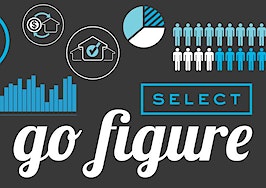I fear for our industry’s future.
Now, to clarify, I do not fear a world without real estate agents. Perhaps I am naive, but I have little fear that real estate agents will be replaced any time soon by an app, a portal or a car-driving robot with a lockbox key.
No, my greatest fear is this — in the interest of speed and under great pressure to provide free information, we are losing our respect for the value of accuracy. It is truly unfortunate.
Is close enough good enough?
So what is an acceptable level of accuracy? 50 percent? 80 percent? 98 percent? Is getting a +10 percent estimate of a value on a home that might be on the market acceptable? Sometimes? Never?
Simply put, different situations require differing levels of accuracy. A seller making a pricing decision today requires different analysis than someone considering selling ‘in the next few years.’ Similarly, a buyer considering taking a job offer in another market needs a general feel for pricing while someone is deciding whether to accept (or decline) a counteroffer needs analysis at a granular level.
Ultimately, we need to be able to serve all crowds — from those who need general intel to those who need pinpoint analysis. And as we continue to depress the accelerator in a race toward big and fast data, we are losing sight of the fact that if the underlying information is flawed, the analysis generated is flawed as well.
The accuracy (dis)incentive
At least for now, we have the ability to get pretty doggone accurate when we choose to be. If we define our data correctly, we can answer some fascinating and complex questions with a high degree of certainty. The key, of course, is having the correct data in the analysis, but that is a different post for a different day.
The reason? For many years, we (real estate agents) have been collectively building our local multiple listing services with an insane amount of data. From our predecessors who launched and cultivated our local MLSs (multiple listing services) in the early part of the 20th century, to those who stewarded their continued growth though the past few decades of unprecedented change, MLS has not only helped our clients to understand their place in the market, but it has also helped spur development, analyze trends and helped shape housing policy. At its core, MLS has made the highly variable housing market far more efficient.
And that was no easy task.
So naturally, now that we can ship millions of bytes of data across a broadband line instantly, everyone is now clamoring for access to the MLS — well, free access. It is in the union of free and access where the issue lies as gathering and maintaining data is not free, despite what everyone wants to believe.
Accuracy is a mindset
In order to maintain the accuracy of the data, it requires a commitment by all involved — portals, agents, MLS as well as the public. Unfortunately, these interests remain largely unaligned. Until each group recognizes that good data matters, and it costs time and money to create, accuracy will remain an endangered species.
To the portals, I say this — it begins with you. When we (real estate agents) see agents from entirely different marketplaces (places two or three hours away) buying ZIP codes in our town, it reinforces our opinion that your commitment to accuracy ends at $79 per month.
You need to demonstrate more respect for accuracy and more respect for those who gather the data from which you benefit. Your policies are not designed to enhance accuracy despite what you say. They are designed to enhance profit, and it is sad that you see these two goals as incongruent.
I take no offense to your pursuit of profit, but I do take great offense in your overwhelming lack of respect for accuracy as you pursue your quarterly earnings.
To the local MLSs, I say this: Do not willingly supply the best data to those who do not share the same respect for it. You are the curators of information we gather, and your role has never been more important. The legal rights governing the ownership of data is in its nascent stage, and I am pretty sure their legal team can beat up yours. Take your time, and get it right because once you give it to them, it is awfully hard to get it back.
And keep this in mind — each and every time you offer the portals incrementally larger levels of our data, you come closer to rendering yourself obsolete. Ignore this fact at your own peril.
To my fellow agents, I say this: it has never been more important to respect your MLS. Willingly play by the rules and take your contribution to the collective effort seriously.
Far too often I see sloppy work, flagrant disregard for the rules and agents willing to sell MLS access for a song. Each one of these actions undermine the collective efforts we all have made to the system and degrade its overall value.
And finally, to the public, I say this — be extremely careful about your wishes. Without compensation, there is no incentive to collect data accurately, and nobody wins when the data is bad. When you demand free and unfettered access to data, which costs time and money to collect and record, you make accuracy an endangered species. Once it dies, you are going to miss it as much as we will.
Database or message boards?
Think of it this way — do we all want housing search (and research) done from a curated database where penalties are levied for the lack of compliance or from an agenda-based message board? I think the answer is obvious.
Listen, it is far sexier to argue about “My Listing/My Leads” and whether millennials want to buy houses (or stay in micro apartments with free Wi-Fi) than it is to talk about data integrity. Data is, by its very nature complicated, nuanced and otherwise painfully boring, but that does not make it unimportant. Now more than ever, powerful and affordable analytical tools give us all the power to provide incredible insight to our marketplace, provided the underlying information is reliable. But know that any analysis is worthless when drawn from data sets full of errors, omissions, inconsistencies and agendas.
I don’t proclaim to have all of the answers — but I just thought I needed to say this.
Rick Jarvis is a co-founder of the One South Realty Group in Richmond, Virginia.



